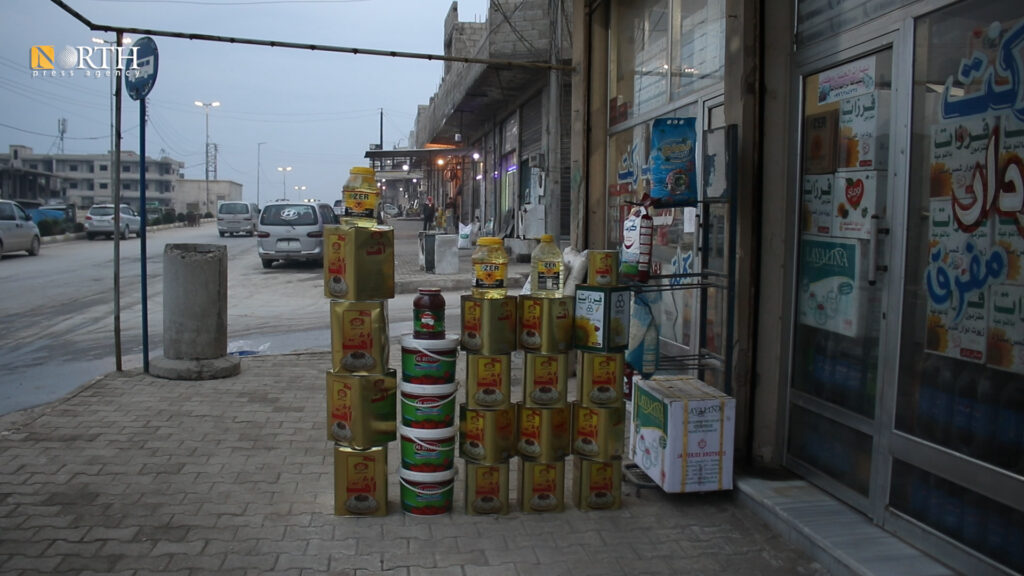KOBANI, Syria (North Press) – Traditionally, shops are active and streets are bustling at this time of the year which coincides with the approach of the New Year. However, Ibrahim’s shop, like his peers in Kobani city, northern Syria, is almost completely empty of customers.
In front of his small shop in Kobani’s famous Tilal Souk, Ibrahim Ahmad, 46, is perturbed about the lack of activity at the souk.
The commercial activity in Kobani has begun to decline more than three years ago, but it gradually worsened and started heading towards almost complete stagnation. This decline can be attributed to Ankara’s repeated threats to invade the city, whose residents live in constant anxiety not knowing what could happen in the future.
Shop owners stopped purchasing new goods in order to avoid risking losing their money. Moreover, most of them started offering discounts on goods to sell them as soon as possible in light of this depression.

In addition, the exchange rate of the Syrian pound [SYP] against the US dollar exceeded 6.000 SYP, which caused prices to raise and further aggravated the residents’ misery.
Ahmed, who owns a clothing store, says that selling has declined by about 90%.
He points out that before the violent and repeated Turkish bombing, which took place on November 20, he used to sell five or six pieces of clothes a day, “but the souks are now in a state of almost complete paralysis; the souk has become a mere street for pedestrians.”
In view of the unstable security situation, the residents prefer to be careful with their money in anticipation of displacement in case Turkey launched its looming ground operation.
The same applies to Ramadan Khalil, 42, owner of a food store in Kobani, who was also affected by the decline in commercial activity.
Previously, Khalil’s customers used to buy their needs for a whole month in advance, but now they buy their needs for a day or two and in limited quantities.
Fearing another heavy round of Turkish bombardment, the man has not bought goods for his store for more than 10 days.
Haji Barho, a 38-year-old resident of Kobani and a large food wholesaler, was also affected by the Turkish threats and shelling.
The sharp decline in demand pushed the man to steer towards daily-consumed staples.
“Since the Turkish targeting of the region, the situation has deteriorated day by day. The seller who used to spend $2.000 on the lowest bill, now spends $500 at most,” says Barho.
He added that sellers narrowed their procurement to the most necessary staples such as rice, oil, tea and sugar, and stopped buying luxuries, he said.

